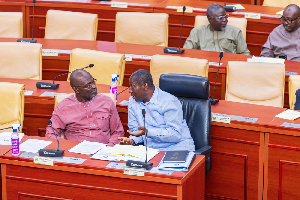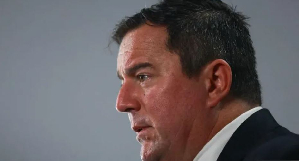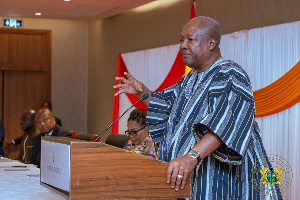Nine oil exploration and production companies operating under the country’s current Petroleum Agreement (PA) legislation have, as of December 2018, defaulted on the payment of surface rental fees to the tune of over US$1 million according to estimates by Bank of Ghana Petroleum Holding Fund, Ghana Petroleum Fund and the Auditor General.
Britannia – U Ghana, GASCO/ Heritage Exploration, Sahara Energy Fields Ghana, Swiss Africa Oil Company, UB Resources, CAMAC Energy, Eco-Atlantic/A-Z Petroleum, Saltpond Offshore Producing Co and AMNI Int. Petroleum Dev. Co according to data from the BoG Petroleum Holding Fund and the Ghana Petroleum Funds annual report, have reneged on payments due as of last December.
Conversely, four companies, comprising AGM Petroleum Ghana, ENI, Springfield Exploration and Tullow Ghana have been consistent insurface rental fees payments.
The four, in 2018 as part of their PA, paid a total amount of US$343,195.47 as surface rental for the acreages they hold under the petroleum agreement.
Payment of surface rental fees by exploration companies, is regulated by the Petroleum Revenue Management Act as part of petroleum receipts for any fiscal year. Defaulting on due payments under the law, attracts stipulated sanctions including penalties.
But in spite of this punitive provision, some of the nine companies have been failing to honour payment obligations since as far back as 2017.
Indeed, Britannia – U Ghana, Sahara Energy, Swiss African Oil, UB Resources, CAMAC Energy, Eco-Atlantic, Saltpong Offshore and AMNI Int, have not paid since 2017.
Consequently, the Africa Centre for Energy Policy (ACEP), has expressed concern about how most of these companies escape sanctions called for by applying the law.
ACEP’s CEO, Benjamin Boakye speaking to the Goldstreet Business at a petroleum contracts media interaction, argued that most companies fail to deliver on petroleum contracts due to the lack of capacity on the part of such companies to invest the required amounts of money in developing the blocks.
Boakye also cited the lack of competition for oil blocks, being that even in cases where two companies show interest in a particular block, the Minister has the authority to use his discretion in awarding it using a first come first served policy.
Weak parliamentary oversight is also a problem, with Parliament having little time to evaluate the details of PAs and this is cited as one of the reasons why companies fail to fulfil their contract terms.
Other reasons ACEP cites include lack of track record by companies wanting to venture into offshore activities and political patronage among others.
The Centre recommends that government, as a matter of urgency, reviews existing PAs and their deliverables to ensure that non-compliant companies face sanctions.
The Centre also has called on the Ghana National Petroleum Corporation to demand compliance with minimum work obligations and also has asked the Petroleum Commission to deepen the transparency of its monitoring process through the publication of the deliverables of the companies to allow independent monitoring by civil actors.
Business News of Wednesday, 15 May 2019
Source: goldstreetbusiness.com













